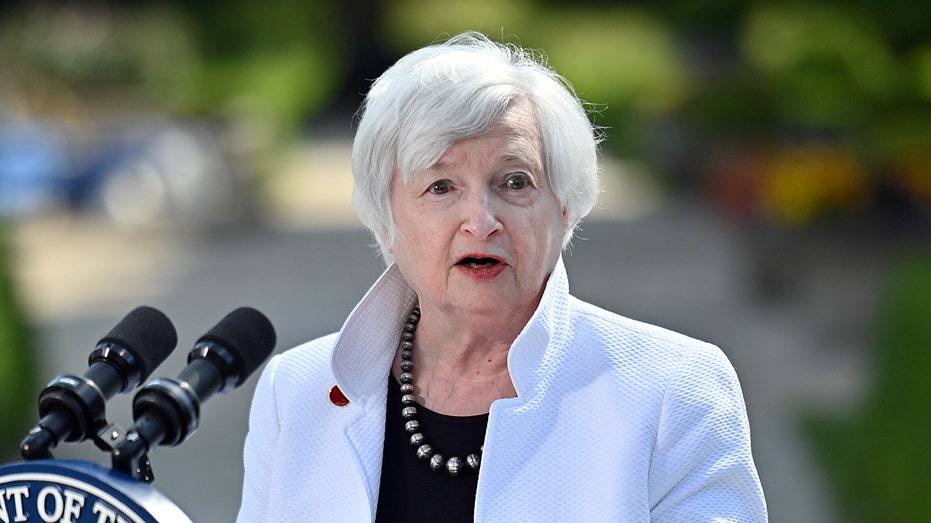Yellen urges Congress to raise debt limit, warns Treasury will deploy 'extraordinary measures' soon
Yellen: Treasury to deploy 'extraordinary measures' on Aug. 2 if Congress fails to lift debt limit
Treasury Secretary Janet Yellen on Friday urged Congress to raise or suspend the debt ceiling by the end of the month, warning that her department will need to deploy "extraordinary measures" beginning Aug. 2 to prevent the U.S. government from defaulting.
"If Congress has not acted to suspend or increase the debt limit by Monday, August 2, 2021, Treasury will need to start taking certain additional extraordinary measures in order to prevent the United States from defaulting on its obligations," Yellen wrote in a letter to the top four congressional leaders.
The debt ceiling, which is currently around $22 trillion, is the legal limit on the total amount of debt that the federal government can accrue; according to the Committee for a Responsible Federal Budget. It applies to both the $16.2 trillion held by the public, and the $5.9 trillion owed by the government.
In 2019, former President Donald Trump suspended the nation's borrowing limit for two years, but that suspension is poised to expire on July 31, and Democrats seemingly do not yet have a plan to raise the limit or suspend it again.
"We’re considering all options," House Speaker Nancy Pelosi told Bloomberg News recently.

U.S. Treasury Secretary Janet Yellen speaks during a news conference, after attending the G7 finance ministers meeting, at Winfield House in London, Britain June 5, 2021. Justin Tallis/Pool via REUTERS/File Photo (Justin Tallis/Pool via REUTERS / Reuters Photos)
If Congress is unable to increase the debt limit, the Treasury would enter uncharted territory, incapable of paying bills – including payments to Social Security beneficiaries, government employees or service members – since it would have no cash on hand. The Treasury Department would be unable to issue any more bills or bonds and would instead have to rely on tax revenue and emergency accounts to pay the bill.
Other "extraordinary measures" the Treasury would take range from halting issuance of special securities to state and local governments to suspending the daily reinvestment of Treasury securities held by a government employee retirement fund and the Treasury's Exchange Stabilization Fund, Reuters reported.
"The period of time that extraordinary measures may last is subject to considerable uncertainty due to a variety of factors, including the challenges of forecasting the payments and receipts of the U.S. government months into the future, exacerbated by the heightened uncertainty in payments and receipts related to the economic impact of the pandemic," Yellen wrote in the letter to House Speaker Nancy Pelosi, Senate Majority Leader Chuck Schumer, House Minority Leader Kevin McCarthy and Senate Minority Leader Mitch McConnell.
GET FOX BUSINESS ON THE GO BY CLICKING HERE
Eventually, the federal government would have to temporarily default on some of its obligations, which could have serious and negative economic implications. Interest rates would likely spike, and demand for Treasuries would drop; even the threat of a default can cause borrowing costs to increase.
The U.S. has never defaulted on its debt before, but came close in 2011, when House Republicans refused to pass a debt ceiling increase, prompting rating agency Standard and Poor's to downgrade the U.S. debt rating one notch.





















